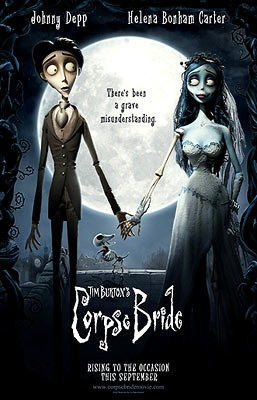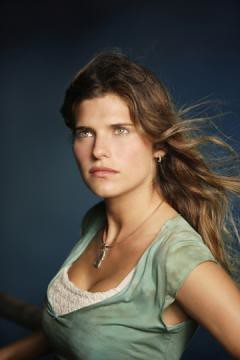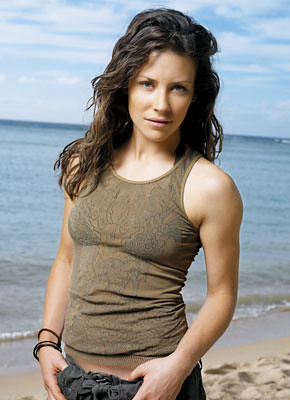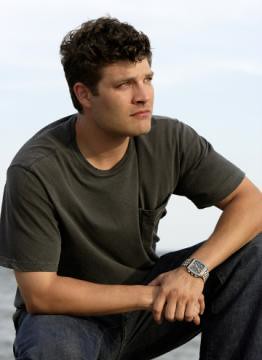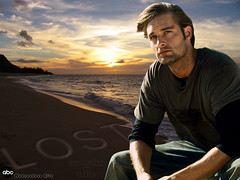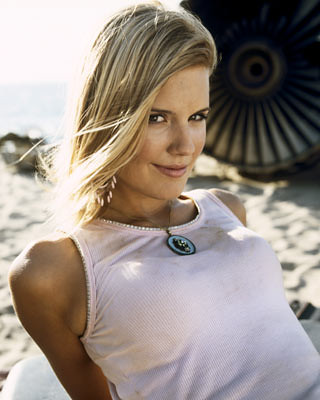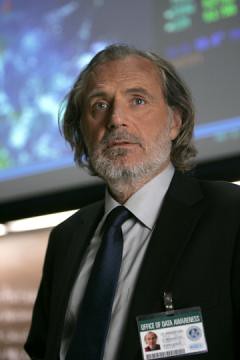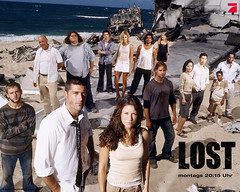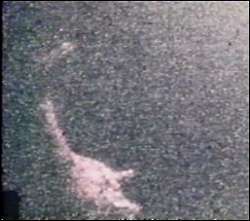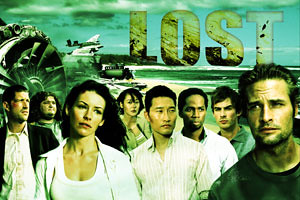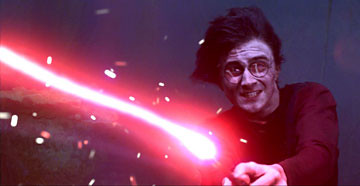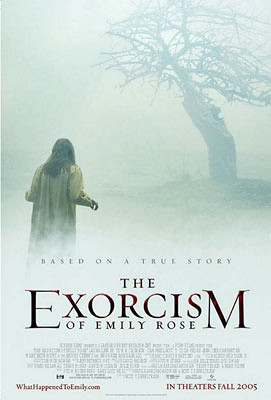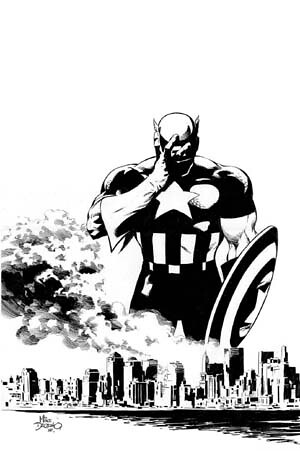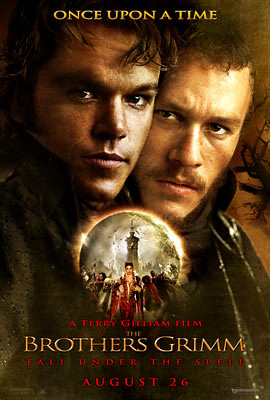It’s been a big year for Tim Burton. First was his summer release of Charlie and the Chocolate Factory, which critics deemed his best work of the past decade, and then this fall’s Corpse Bride, his first Stop-Motion aminated feature since Nightmare before Christmas. Contrary to popular belief, Tim Burton did not actually direct The Nightmare Before Christmas. He produced the film and conceived the characters and some of the story, but Henry Selick, a visual FX and animation guru, who also directed Monkey Bone and James and the Giant Peach.
One can’t help but compare The Nightmare Before Christmas to The Corpse Bride, because they are both stop motion animation, which is a rarity these days, and both generated from the insanely imaginitive mind of Tim Burton. The Nightmare Before Christmas is amazing, not only because of how detailed and unique the animation looks, but also because the story is marvelously unique. The idea of Halloween and Christmas clashing together is brillant. Jack Skellington, in his own way, is a profound and fleshed out character, one with whom we can relate too. He finds himself feeling bored and jaded with the world that he lives in; he is tired of the part he’s had to play his entire life. His accidental journey to the North Pole (Christmas Land) only fuels his already burning desire to take on a new identity, and spawns his mission to become “Santy Claws.” Nightmare is particularly touching, I think, because it deals with the subject, that try as we might, we cannot always change who we innately are.
There are a lot of storyline elements, and different characters in Nightmare. There is the love story between Sally and Jack. There is the abduction of Santa Claus and the ominous Oogie Boogie. The songs composed (and performed) by Danny Elfman serve to raise the level of Nightmare to magical hieghts. Elfman savvily fused sounds from traditonal Christams music with creepy Halloweenesque motifs to create something that was (and still is) unlike anything that has ever been done.
Like Nightmare, The Corpse Bride used the stop motion technique, but it modernized it by using digital photography, instead of film-dependent cameras. Burton also officially directed Corpse Bride, (with some help from animator Mike Johnson) in addition to producing it.
The look of Corpse Bride, is without a doubt, absolutely amazing. The design of the characters, and the landscapes that they populated, were stunning and stylized to a perfect pitch. Burton’s love and talent for drawing and animation are never lost in his films, but never are they more accentuated than in his stop motion pieces. Burton’s magic lies in his ability to meld the dark with the light, to sketch out grotesque scenes and somehow infuse them with humor and sentimentality. The dark creations of his mind are as spooky as they are beautiful, and Corpse Bride is no exception. I loved the way all the main characters looked –Victor and Victoria had a wonderful pristine Victorian pallor, and perfect, doll like dimensions. Both of their parents were severely drawn, comically exaggerated figures with the most specified of mannerisms, they were great. But of course the most striking of all was The Corpse Bride herself. A cross between the green alien dancer from original series Star Trek, and the Bride of Frankenstien, she was both stunning and eerie, sexy but gruesome. Her facial features and body type were an exaggeration of a Hollywood starlet, and stood out in contrast to her partially decayed flesh that allowed her ribs and teeth to poke through at certain spots.
The screenplay of the film was written by John August, Pamela Pettler and Caroline Thompson. August also wrote Charlie and the Chocolate Factory, and like Charlie, I thought Corpse Bride’s story was streamlined - but to the point of simplism. I really liked Charlie and the Chocolate Factory, and I liked the concept of the Corpse Bride, but there was something about the execution of both stories, particularly in the resolution that left me sort of thinking ….is that it? The ending of Corpse Bride was so neat and tidy. Victor and Victoria are married, and the Corpse Bride is set free from her curse so that she may …..ascend to heaven?
But let me back up a bit. At the start of the film we learn that Victor who comes from a nouveau riche family of fish mongers, is set to marry Victoria, a daughter of an aristocratic family who has run out of money. Neither has met the other, and both feel nerves and trepidation about the big day. I liked the set up of the marriage, and thought the contrast between the two families was great. Instead of becoming the story of the typical arranged marriage where the bride and groom have little affection for one another, this story explored a different possibility. What if the members of a bethrothed marriage actually liked each other?
Victoria, a timid romantic, is immediately taken by Victor’s piano playing, and the two share a tender moment, that is made even sweeter by the fact that they are meetin one another for the first time. But just as they’re beginning to realize that their arranged marriage might be the hand of fate ushering them along to their rightful destinies, they are bustled off to a tedious wedding rehearsal.
After numerous attempts at memorizing his wedding vows, Victor becomes so frustrated and mortified that he runs out of Victoria’s house and into the snow covered woods, where he doggedly recites his complicated vows until they come to him naturally. The only problem is, --as he’s practicing each step of his wedding ceremony, he places the ring the nub of a knarled wooden tree, in place of Victoria’s finger. Unwittingly this is how he awakens, The Corpse Bride.
Victor finds himself swept away to the underworld, bound to the Corpse Bride by the wedding vows he recited in the forest. It’s not long before he learns of the tragic fate that befell The Corpse Bride. Of course it would’ve been nice if we could have gotten a better idea of exactly what her story was. One of the large numbers in the film, the song that tells the story of the unlucky bride is barely recognizable.
The lyrics come off sounding sort of like this:
Let me tell you a story about -----muffle, muffle, muffle
‘cause don’t you know you can’t ---muffle, muffle, muffle
and if you ever ---muffle, muflle, muffle
you’ve got to ---muffle, muffle, muffle
chorus:
ya, ya, ya, ya, ya,
ya, ya, ya, ya, ya, ya, ya, ya, ya
I thought there was a possibility that the sound could have been off in my theatre, but I’ve spoken to some other friends who saw it elsewhere, and they complained of the same difficulties. Now I absolutely adore Danny Elfman, I think he’s done some incredible work, and I am very fond of his scores as well as his songs (like those in Nightmare and Charlie), but Corpse Bride was definitely not his best work. I’m not sure if he worked on Charlie and Corpse directly back to back, but it certainly felt that way. Some of the skeleton songs were a little too reminiscent of the oompa loompa songs that I heard just a couple months prior. “Tears to shed” is probably my favorite of the songs in the film, a melancholy ballad sung by the Corpse Bride about how though she might be dead, her heart can still be broken. I thought this number was especially memorable by her two little sidekicks, a maggot and black widow spider, who sang with her.
But back to the plotting of the film. Once the setup has been established, the rest is very straightforward. Victor must find a way to get back to the living so that he can marry Victoria. But things are complicated when Victoria’s parents thrust a new suitor on her, the strange and suspicious looking Lord Barkis. When Victor hears about Victoria’s marriage, he misunderstands her intentions, and begins to become enchanted by the alluring corpse bride. Of course we learn that Lord Barkis has evil intentions and intends to murder Victoria for her money….just as he did with the Corpse Bride. All is saved at the end of the day when the corpse bride backs out of her wedding to Victor, and he is able to marry Victoria. The potion that was to kill Victor and allow him to be with the Corpse Bride, is instead consumed by Lord Barkis, who promptly dies and gets his just deserts when he is ambushed by a group of angry dead folk. The Corpse Bride’s curse has somehow been reversed by Barkis’ death, and she is now “freed” and her body is diffused into the night air by a startlingly beautiful flurry of butterflies.
But something slightly intangible was missing from this film. There was a missing element that prevented me from becoming engaged in Corpse Bride the way I was with Nightmare. I think part of it was that The Corpse Bride needed to develop its characters a bit more. In Nightmare, we got a sense of what Jack wanted, what his passions were, and what his inner most thoughts were. Victor was much more vague and ambiguous. We learned that he had artistic abilities, he could sketch and play the piano. But we didn’t even know what his profession was. We get a pretty good sense of Victoria’s relationship with her parents, but its unclear what Victor’s is with his ---he says at one point to the C bride, that his parents were never really approving of anything he’s ever done. But there isn’t really an indication elsewhere in the film that he had an antagonistic repor with his mother and father. Even the love story between Victor and Victoria felt a bit forced. They interacted with one another so little, and it was a bit of a stretch to believe that they were as devoted to each other as the story made it seem. I wish there had been more scenes like that two that centered around Victor and the piano. In both cases, the music he plays is the source of connection with both of these women (Victoria and the C bride). Victoria admires is, and the Corpse Bride participates. These scenes were windows into the essence of these characters.
It is difficult for me to pin point exactly what was missing from The Corpse Bride. I think ultimately, it could have used some extra layers in its character and story to give it more depth. It was a visually impressive feat, but did not have the sort of same unique and thematically resonant story that Nightmare did. Perhaps if we had been able to spend a little more time with the characters ---if they had been allowed to express themselves more, and perhaps if the story had not been so streamlined, it might have been more than just a lovely looking, entertainingly dark, fairy tale.
